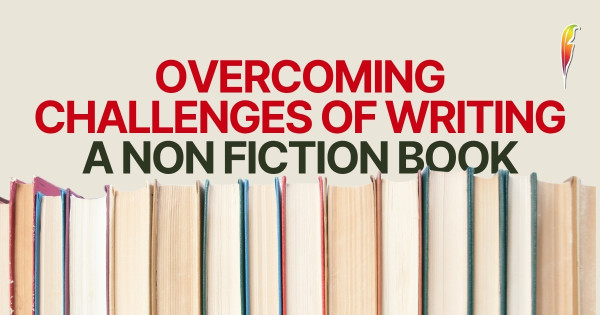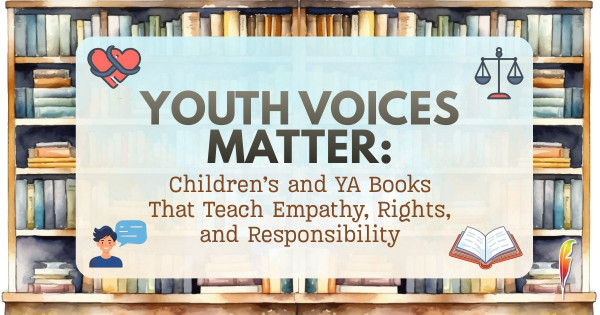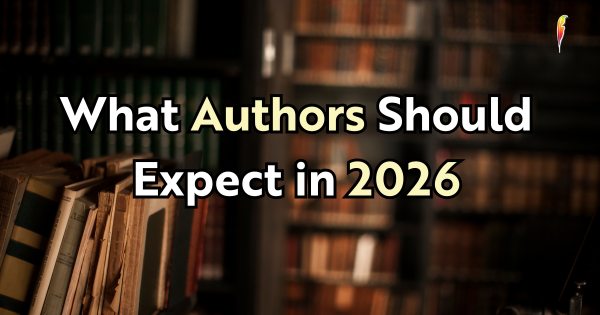
When Reality Hits the Writer’s Desk
Writing a non-fiction book sounds simple until you actually start. You sit at your desk, open up your laptop, and suddenly all your ideas seem to scatter like you have nothing to write about. The truth is, non-fiction is tough. You’re not just telling a story…you’re trying to explain your point, prove it, and then guide people through it. Most nonfiction authors go through the same thing. They deal with some never-ending research, chapters that just don't make sense, and words that just don’t fit. But these struggles are part of the process. Every writer faces them before finding their rhythm.
Writing non-fiction takes patience, but once you understand what makes it hard, it becomes easier…
What Makes Non-fiction Writing Unique?
Non-fiction stands apart because it’s based on truth. Instead of creating worlds and characters from one’s own imagination, non-fiction writers use facts, personal experiences, and real-life events…But that doesn’t mean it’s boring. If written well, it's a story worth reading.
Here’s what makes nonfiction writing unique:
- It’s factual but creative.
- It teaches and connects.
- It uses storytelling techniques.
- It’s grounded in honesty.
If you compare non-fiction vs fiction writing challenges, the difference is clear. Fiction gives freedom to imagine, while non-fiction is all about the truth and accuracy.
If you find that perfect balance, then it’s a book worth reading…
Some Common Challenges Nonfiction Writers Face
Every non-fiction writer hits a wall at some point. You start with passion and a clear idea, but as the writing goes on, it becomes easy to lose focus or feel stuck. These are some of the most common challenges authors face while turning real-life facts into engaging stories.
1. Getting Started
That first blank page can be intimidating. Even when you know your topic, figuring out where to begin often feels impossible. Should you start with research, an outline, or the first chapter? Many writers end up delaying their start because they want everything to be perfect from the first line.
2. Organizing Too Much Information
Nonfiction often means a lot of notes, articles, and interviews. But with too much information, your draft can become a mess pretty quickly. The real skill is deciding what supports your main message and what can go.
3. Losing Your Reader’s Interest
Facts alone can never hold someone’s attention for long. If your writing reads like a report, most of the readers might tune out. To keep the readers interested, always keep these things in check…
- Anecdotes
- Real-Life Examples
- Simple Language
4. Balancing Truth and Creativity
Non-fiction isn’t just data, it’s emotion, perspective, and storytelling…But keeping a blend of creativity with truth can be tricky. You can’t change facts, yet you still need to make them relatable.
That balance often takes practice and a lot of rewriting.
5. Dealing with Self-Doubt
Even experienced authors question themselves. “Is my story good enough?” “Will readers care?” These thoughts can slow you down more than any technical challenge.
Remember: Confidence Grows with Progress. Every Page Written is a Win.
10 Best Books for Nonfiction Writers
Non-Fiction Writing takes more than just skill - it takes courage, honesty, and the ability to turn real-life experiences into meaningful stories.
Here are ten books that every non-fiction writer should read at least once:
1. The Sweet Pain of Being Alive By Ann Anderson Evans
A personal memoir that talks about grief, love, and the complexity of human relationships. Ann’s courage to question everything she once believed about right & wrong is what makes this book a must-read for writers. It will help you learn…how to tell raw, emotional stories with authenticity.
Why read it:
- It helps you understand how to write about pain.
- It shows how honesty can make a memoir powerful.
2. World War 2 - The War That Changed Humanity By Johannes H. Egbers
This is a historical study of World War 2 that goes beyond battles. It studies how war reshaped societies, technology, and human values. Writers looking to write something based on history…you’ll find plenty to learn here.
Why read it:
- It is Perfect for non-fiction writers who love history and social commentary.
- It is a model that shows how to balance facts and also describe it in a story.
3. A Day of Infamy Revisited By Steve Sandberg
An introspective look at art, creativity, and how tragedies can shape talent. Steve’s reflections after 9/11 show that inspiration can emerge from even the darkest moments.
Why read it:
- This book teaches how to use emotion in creative work.
4. A Girl’s Memoir By Ezmeralda Fernandez
A memoir of a Young Girl, this book is about truth, empathy, and self-expression. It’s a reminder that perspective shapes every story we tell and that being honest, even when it’s uncomfortable, is where great writing begins.
Why read it:
- It’s all about an authentic voice and perspective
- It is Ideal for writers working on a memoir or something like that.
5. A Man’s World By David Charrington
A story of family trauma and survival. This novel-style non-fiction talks about the emotional toll of domestic abuse and its lasting effects. It’s a guide for writers on how to approach sensitive topics…Just remember two things - Empathy and Truth
Why read it:
- It helps writers study difficult subjects easily and responsibly.
- It shows how real-life pain can be harnessed to write something meaningful.
6. A Message from a Mother’s Heart By Ana Lydia Chavez
An emotional autobiography that talks about resilience, culture & the immigrant experience.
Why read it:
- It inspires non-fiction writers to take inspiration from their personal experiences.
- This book is a great example of storytelling that blends both emotion & culture.
7. A Story That Needs to Be Told By Stephanie Lauren Weise
In this book, Stephanie shares her real experiences on how she had her guidance right from the heavens…this story is a reminder for the readers that some stories are meant to be shared, no matter how unbelievable they sound.
Why read it:
- It will encourage you to write about your personal beliefs and experiences
- It is Ideal for authors who want a blend of spirituality with truth in their book.
8. A Resilient Mindset By Anita Worrall
This was set against the backdrop of 20th-century Europe; it is the memoir of a Jewish family’s escape from persecution and their journey towards freedom.
Anita’s story is one of courage, resilience, and survival.
Why read it:
- It offers lessons in writing about historical truth and human endurance.
- This is perfect for non-fiction writers.
9. A Way to Relax By Pete Davies
An artistic study of nature, creativity, and individuality.
Pete’s bold and distinctive style mirrors his message - Let your Surroundings Shape Your Work.
Why read it:
- You can take this as an inspiration for using creativity and visual thinking in writing.
- It is great for authors who want to talk about artistic expression in non-fiction.
10. An American Stairway By Richard Deatherage
A story of personal reflection during a time of loss. In this story, Richard (our main character) works on his identity and purpose through different memories and family stories,
Why read it:
- It teaches writers how to use reflection and memory as tools for storytelling.
- A beautiful example of personal growth through narrative.
How to Build Confidence as an Author?
Confidence doesn’t come from waiting for the “right time” to write…it grows as you keep writing anyway. Most non-fiction authors battle imposter syndrome at some point. What separates those who finish their books from those who don’t is belief in their own story.
Here’s how you can build that belief…
1. Trust your writing voice.
2. Focus on progress, not validation.
3. Remember why you started.
4. Read stories that remind you it’s possible.
5. Celebrate small wins.
Some Final Thoughts...
Every nonfiction writer begins with a single truth, a story that needs to be heard. It can be a memoir or a historical reflection, your experiences hold that power to connect, heal, and inspire others. Nonfiction writing isn’t about having all the answers. It’s about asking the right questions and having the courage to share what you’ve learned.
Each challenge, memory, or emotion can become a part of something greater.
If you’ve been waiting for a sign to start, this is it. Write the first page…it won’t be perfect the first time, but that is part of the process…Right?. Learn from authors who’ve done it before you, but never lose your own touch.
Because at the end of every non-fiction writing journey, one truth remains.
Your story deserves to be told.
We use cookies on this site to enhance your user experience and for marketing purposes.
By clicking any link on this page you are giving your consent for us to set cookies



